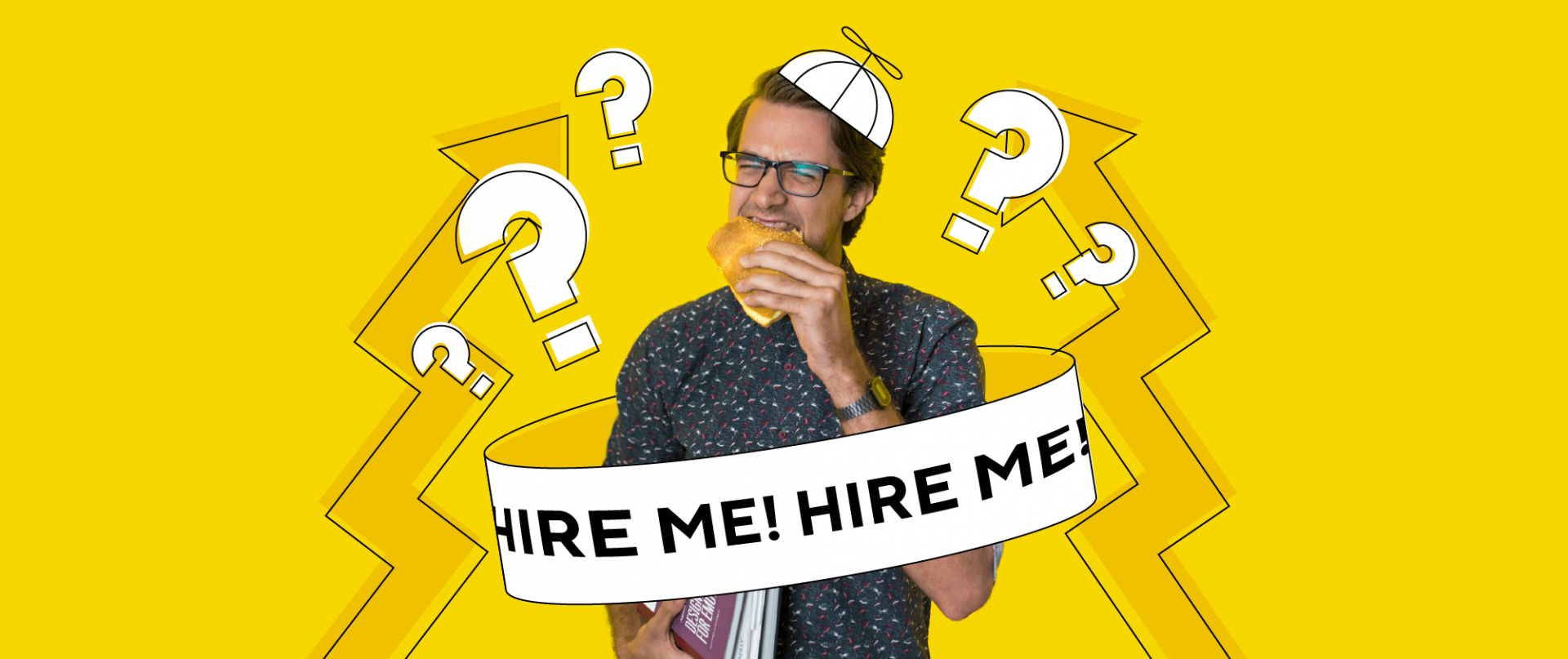
When I was applying for college a few years ago, I didn’t know that I’ll be a Junior User Experience / User Interface (UX/UI) designer by now. Truth be told, I didn’t even know what interests me at that point. I chose my college not even knowing that I’ll fall in love not only with UX/UI design but with design in general. Anyway, I got employed right after finishing my bachelor’s degree and that was quite a turn of events for my life. I needed to adapt my mindset — from being a student whose only concern is hanging out, eating, sleeping and studying, to being a full-time employee working on projects with international clients. Stepping into working life can be troublesome, and with these few tips, you can be more confident and react better if these situations occur.
What will happen if I don’t deliver the project on time?
Imagine you are working on a project you find very interesting. Everything seems great, the client is communicative and gives constructive feedback, you feel confident with the visual aspect and so on. You got so immersed in the work that you pay great attention to details but you designed only a fraction of the project. Time keeps passing by and you suddenly realize that the design deadline is scheduled a week from now. There is no way you can deliver it on time, even if you work overtime. Of course that you imagined the worst-case scenario, your team leader is angry, the CEO is angry — you get fired immediately.

To save you from that stress, I assure you that this scenario is very unlikely to happen because of two things:
- The company that employed you is aware of your competence so they won’t give you overly complicated projects in the beginning. If you happen to be in a digital agency, then there is probably a more experienced designer who will slowly mentor you till you reach the level of independence where you can handle a project by yourself.
- Sometimes the projects get complicated on the way and initial (overly optimistic) deadlines just can’t be met. In this case, the problem usually gets solved by communication with the clients who, in most cases, give you additional time. You have nothing to fear if you put effort in your work (you are reading this so I don’t doubt your work and studying ethics).
If that is not the case and everything goes wrong, which is quite unusual in this industry, bite the bullet and consider another job. If you research job opportunities and make a sacrifice such as, for example, changing the city you live in, opportunities will be numerous.
Don’t let a minor setback get in your way.
All in all, there can be a lot of bumps on the road and all you can do is learn from them.
Is my project any good?
As a UX/UI designer, I wonder whether my designs will ever be as good as those on the design sharing platform — Dribbble (kudos to my favorite dribbblers — Balkan Brothers and Cuberto).
Disclaimer — a lot of designs on Dribbble are concepts and are made only for showcasing purposes which means they don’t have constraints that every real-life project has.
Dribbble is great for inspiration and for the whole design community in general (I use it on a daily basis) but don’t think that the work you produce will be nearly as good (at least in the starting phase of your career). You need to learn from more experienced people, but the single biggest mistake is comparing yourselves to them. I still do that sometimes, but it’s because I want to be the best possible at what I do (Maslow explains this quite well). Skills can’t be mastered overnight, so being patient and hardworking is the best thing you can do at the moment.
It’s really good to be aware of the work that experts produce, after all — you search for inspiration and knowledge in them. But how can you know if YOU are producing something nearly as good?
Well, you will get feedback from your colleagues and clients which will leave you iterating your design. Personally, I love bad feedback more than good feedback because I find it more sincere and to the point. Also note that every design has constraints (target audience, brand tone of voice, client’s wishes, etc.) and the sooner you know how to design within them, the better. You will get nervous sometimes because you can’t create what you imagined, and that’s fine. Learn from your mistakes and you will get better (I believe in you).
The primary solution is never the last.
Do I bother other colleagues with my questions?
This one is quite tricky and it depends a lot on your colleagues. Generally, experienced designers (or any other IT employee) love helping juniors to some extent. Being a constant bother, asking dumb or unthoughtful questions or just asking questions in wrong situations, may lead you to pass that extent and be classified as a pain in the ass. I think I passed that point in several situations and I primarily knew it because I got short unconstructive answers and sighs when I started speaking. My colleagues generally aren’t rude like that so I figured I got a little bit annoying. In the end, I’m pretty sure they started to love me, so I don’t think I went too overboard with questions.
You can make sure you don’t get over that annoyance point by paying attention to several aspects:
- Are you sure your questions are not pointless, or maybe you simply didn’t think them through? A lot of questions that came to my mind could have been answered by myself if I gave myself several more minutes, or even seconds, to think about it. Even a quick internet search can do the trick if it’s something technical.
- In what state is the person you are addressing? Did they just finish a 2-hour long meeting and you immediately start shooting them questions? That’s a big no-no for making sure you get the desired answer. If it’s possible, consult someone else if you have the opportunity. Empathy is an important soft skill and you should be good at it if you want to have good relationships with your colleagues. Communicate with your colleagues and find out how they are feeling. After all, we are social creatures and many problems can be solved or avoided with communication.
- Should I interrupt someone if they have headphones on? This totally depends on the individual. The best solution is to ask them upfront whether wearing headphones have any special significance like “Don’t disturb me”. Of course, if you need to interrupt the individual for something serious, you will do that (but it better be worth it).
- What if colleagues work remotely? That’s even easier than when you are in the office. If they don’t want to be interrupted, they will disable the notifications or deliberately won’t answer your messages on the communication platform. If it is something urgent, it’s best to have the colleague’s phone number (so get it as soon as you can).
Keep this in mind and I’m sure you will make good relationships, maybe even some life-long friends.
Do developers and designers secretly hate each other?
Designers just move pixels left or right and spend the whole day choosing which of the two icons is better. Meanwhile, developers are watching tutorials and hellos the world in their to-do apps.
Jokes aside, someone in the wild may truly think like this. In the modern web and app development environment, designers and developers can thrive only if they have good relations. Along my short journey as a designer, I came across some things that can occur and cause problems in the long run:
- I figured out there may be some communication misunderstandings with one another. Junior designers don’t know what APIs, attributes and libraries are. The same goes with the junior developers — wireframes, leading and microcopy are probably unknown to them. To bridge the gap, one eventually needs to learn how to communicate effectively. Use plain language (if you can), educate yourself (Great start) and ask for explanations.
- Another thing that might cause problems is not cooperating enough. Developers need to be involved early so the designers know if something is (im)possible to develop. The same goes for the other way around. If the developer isn’t sure what the design should be like, ask the responsible designer (even for small things). Empathy also plays a role here. Mutual understanding of wishes and obstacles can greatly improve the project outcome.
Being new in the industry is great! No, really, there are a lot of new and exciting things you learn in a short amount of time. Sometimes it can be overwhelming but eventually, you will get better and more skillful. Just keep learning, observing and keep moving forward.
Bonus motivational tip
Try comparing your present work with your work from a month ago or even a year ago. If you are like me, then you will be very happy to see where you have come with your knowledge and skills. It’s very rewarding in work life (and life in general) to cherish those improvements no matter how big or small they are. You will gather a lot of small improvements that will eventually be a big improvement that will excel you in your career.
